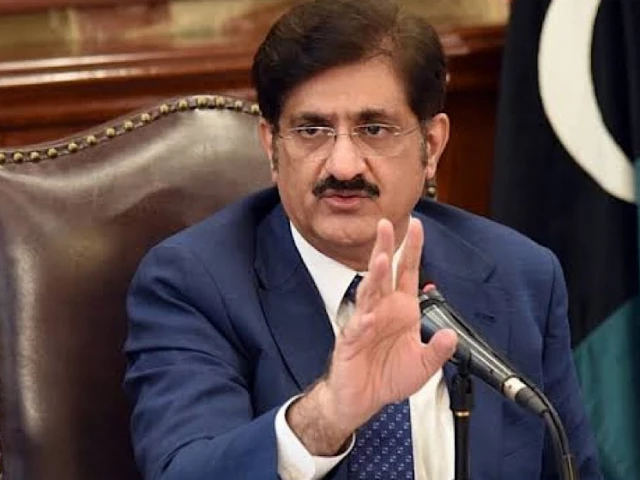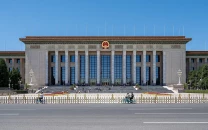CM outlines fiscal, development agenda
Slams centre over withheld funds, cuts for various projects in Sindh

Sindh Chief Minister Murad Ali Shah outlined a fiscal and development agenda for the province while highlighting serious financial challenges and federal shortfalls.
Addressing a post-budget press conference on Saturday, the CM criticised the federal government for failing to meet its financial commitments, revealing that Sindh was informed just one day before the budget presentation that Rs105 billion in expected funds would be withheld.
Sindh has received Rs1,478.5 billion from the divisible pool since last year, but Rs422.3 billion remains outstanding. He expressed hope that the withheld amount would be disbursed by the end of June.
Despite being under an IMF programme that demands strict fiscal discipline, the Sindh government will allocate Rs590 billion for development projects this year, with a total budget of Rs3.45 trillion, Rs1 trillion for development and Rs2.15 trillion for current expenditures.
Notably, Rs1.1 trillion is earmarked for salaries and pensions, leading to salary increases of 12 per cent for lower-grade employees and 10 per cent for higher grades.
Sectoral budget increases include an 18 per cent rise in education funding and an 11 per cent increase in health. Funding for agriculture, irrigation, and local government projects has also seen significant boosts.
Furthermore, Rs236 billion has been allocated for infrastructure projects in Karachi, including public-private partnership initiatives.
CM Shah highlighted Sindh's social welfare achievements, particularly in housing for flood victims, with 500,000 homes built and another 850,000 under construction, totalling 1.3 million.
To enhance rural living standards, the CM announced a Rs600-billion-project for rural water and sanitation, benefiting 4.5 million villagers.
Regarding taxation, Murad noted that no new taxes were introduced in the budget, with some taxes eliminated or reduced, including the abolition of the entertainment tax and cuts to restaurant taxes. The stamp duty on third-party vehicle insurance has been reduced to Rs50, with a drop in the insurance tax from 15 per cent to five per cent.
To modernise governance, the Sindh government is digitising land records through block chain for easier access. The CM claimed that free laser levellers will be provided to small farmers, with subsidies for larger ones, alongside the implementation of cluster farming technology. The CM said that improvements in education and health include the establishment of 34,000 new caste centres and expanded support for persons with disabilities.
Cognitive Remediation
The CM outlined the K-4 water project structure, where the federal government is responsible for sourcing water from Keenjhar Lake, while the Sindh government manages distribution and has allocated necessary funds. A total of Rs20 billion is earmarked for the K-4 feeder, alongside plans for a costly five-million-gallon desalination plant.
The CM also noted 20,000 to 25,000 job vacancies in grades I to IV, with plans for recruitment via IBA-administered tests for BPS-V to VII and filling higher Grade 16 positions. The CM mentioned Sindh's conditions for supporting the federal budget, emphasising equitable distribution of development schemes and the detrimental cut of university funding from Rs4 billion to Rs2 billion, which has sparked protests.
On the critical Sukkur-Hyderabad Motorway, the CM expressed concern over the halving of federal funding from Rs30 billion to Rs15 billion.
The CM emphasised that major projects are not included in the Federal Public Sector Development Programme (PSDP) and criticised the 18 per cent tax on solar panels as unjust. He warned that the Pakistan Peoples Party would not support the federal budget if unresolved.























COMMENTS
Comments are moderated and generally will be posted if they are on-topic and not abusive.
For more information, please see our Comments FAQ